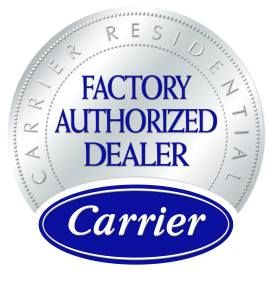Some Essential Summer AC Prep Tips
The summer season means hotter and more humid days, especially in areas like Florida. This is why having an air-conditioning unit is essential for many households and establishments. To ensure the reliability and efficiency of your cooling system, you should always make sure that it’s ready for the hottest months of the year. Here are some summer AC preparation tips to avoid any potential issues with your unit:
Clean and Replace Your Filters As Needed
Different HVAC systems will vary in their need for cleaning and replacement. Reusable filters, for instance, should be frequently cleaned, especially if you have allergies or pets. Other types of filters require annual cleaning and replacement, some biannually. The size and dimension of your filter, as well as the level of filtration needed, will also depend on the type of unit that you have.
Inspect Your Vents and Ducts
Ensuring your ducts and vents are dirt- and clog-free will keep your HVAC running smoothly and efficiently. You should check for accumulated dirt, dust, hair, fur, or any other type of debris and remove them so air can flow freely. If you are a homeowner or business owner taking care of the AC upkeep yourself, you can conveniently use your vacuum for a quick fix.
Check Your Unit’s Exterior and Location
AC systems with condensers and parts located outdoors need to be checked and cleaned, too, as they could be covered with leaves, branches, and debris, which could affect their function. For good measure, keep the space around your outdoor unit clear for at least two feet to lower the likelihood of debris getting inside and causing issues.
Schedule an AC Maintenance Service
While regular checkups and basic cleaning go a long way toward maintaining the excellent condition of your cooling system, the work of professional technicians is still crucial. Apart from having the right tools and equipment for tune-ups and thorough cleaning, they can identify potential problems, detect leaks and damage, do repairs, and provide long-term solutions.
The benefits of regular maintenance include:
- Increased efficiency: Dirty, overworked HVAC systems have to work much harder and use much more energy to adequately cool a home. By maintaining all necessary components, your HVAC systems don’t need to work nearly as hard, which means they consume less energy.
- Lower energy bills: Routine maintenance increases your system’s efficiency, which lowers your energy bills.
- Reduced chance of breakdowns: Maintenance allows a service professional to identify and take care of any problem areas with your system, so you don’t have to worry about any unexpected breakdowns in the future.
- Longer-lasting equipment: Routine maintenance can double the lifespan of your HVAC systems by keeping them in the best condition possible.
- Improved air quality: Improved airflow, clean ducts, and new filters all make for a home full of fresh, clean air.
- Enhanced comfort: Say goodbye to reduced airflow, malfunctioning parts, and leaking ducts when you have a service professional maintaining your system. Maintenance ensures each room in your home is evenly cooled or heated.
- Peace of mind: Knowing that your HVAC systems are properly cared for and prepared to keep your home comfortable all year long helps you rest easier.
Keep Your Home or Workplace Cool and Comfortable All Summerlong
Follow these simple steps to prepare your AC for summer. Should you need help troubleshooting and resolving any problem with your air conditioner, do not hesitate to reach out to Bounds Heating & Air. We provide a range of AC services to clients in and around Gainesville, Florida.



